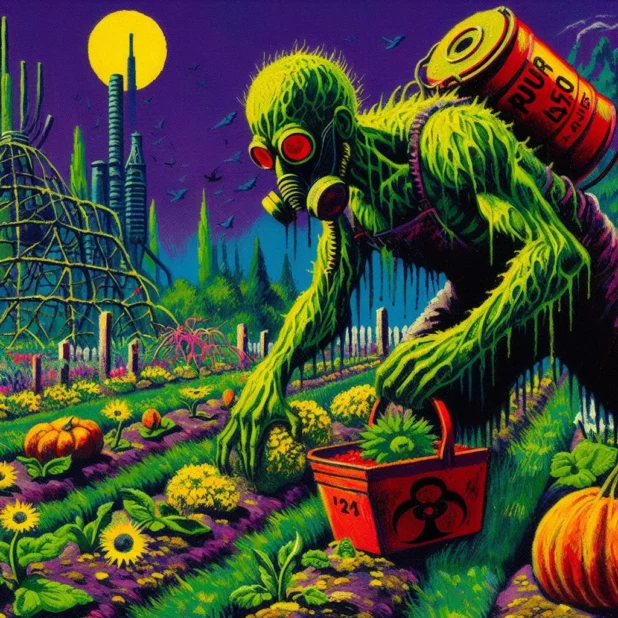Did you know that toxic sludge is dumped all over your food?
You probably didn’t.
The New York Times and CNN don’t report these sorts of stories.
New legal action could put an end to the practice of spreading toxic sewage sludge on US cropland as a cheap alternative to fertilizer, and force America to rethink how it disposes of its industrial and human waste.
A notice of intent to sue federal regulators charges they have failed to address dangerous levels of PFAS “forever chemicals” known to be in virtually all sludge.
The action comes as sludge has contaminated farmland across the country, sickening farmers, killing livestock, polluting drinking water, contaminating meat sold to the public, tainting crops and destroying farmers’ livelihoods.
The practice “doesn’t pass the straight face test”, said Kyla Bennett, policy director for the Public Employees for Environmental Responsibility (Peer) nonprofit, which filed the notice.
“EPA has known for years that there is PFAS in biosolids but they are sitting on their hands, and I can think of no better ways to contaminate America than PFAS in pesticides and PFAS-laden biosolids,” she said. “We’re going to get the EPA to start regulating this shit, literally.”
PFAS are a class of around 15,000 compounds that are dubbed “forever chemicals” because they don’t naturally break down, and accumulate in the human body and environment. The chemicals are linked to a range of serious health problems like cancer, liver disease, kidney issues, high cholesterol, birth defects and decreased immunity.
Sludge is a mix of human and industrial waste that is a byproduct of the wastewater treatment process. Its disposal is expensive, and the Environmental Protection Agency (EPA) allows it to be spread on cropland as “biosolid” fertilizer because it is also rich in plant nutrients.
But public health advocates have blasted the practice because the nation spends billions of dollars annually treating water only to take the toxic byproduct, insert it into the food supply and re-pollute water.
Maine became the first state to ban biosolids after it found PFAS had highly contaminated crops or water on at least 73 farms where sludge had been spread. The state recently established a $70m fund to bail out affected farmers.
Meanwhile, in Texas, a new lawsuit against waste management giant Synagro alleged the company knew or should have known sludge it sold to farmers was contaminated with PFAS. Separately, local law enforcement has opened a criminal investigation into Synagro.
How are any Americans even still alive at all?
What is the cancer rate going to look like in 15 years?
We might think ‘don’t put highly toxic chemicals in children’s toys’ was something that didn’t need to be said – but, sadly, many toys, even some toothing toys, contain chemicals, including PFAS, linked to cancers, hormone disruption & other serious health conditions. https://t.co/4vNIDJLtHt
— watershed_investigations (@WATERSHED_i) March 12, 2024
 Daily Stormer The Most Censored Publication in History
Daily Stormer The Most Censored Publication in History



